
Advanced Robotic Finger Movements Using Humanoid Robot Sensor Technology
Pacific International Bearing Sales (PIB) is a provider of advanced bearing solutions, supplying high-quality components for cutting-edge applications, such as humanoid robots. PIB partners with MinebeaMitsumi – the manufacturer of the renowned NMB brand of precision miniature bearings – to bring proven, high-performance components to robotics projects. In humanoid robotics, every joint and actuator demands reliable bearings. From tiny finger joints to major limb axes, PIB offers a comprehensive range of bearing technologies to address the unique challenges of human-like robots.
Miniature Bearings for Humanoid Robot Hands

(Image source)
Humanoid robot hands incorporate dozens of small joints and linkages, each relying on miniature precision bearings to mimic the dexterity of a human hand. PIB supplies ultra-compact deep-groove ball bearings with inner diameters as small as 2 mm, enabling designers to fit robust joints into confined finger assemblies. These miniature bearings are available in high-carbon chromium steel (SUJ2) or stainless steel constructions, with open or shielded designs to balance friction and environmental protection. For example, Mechanical components – Achievement items for Humanoid robot hand:
| Model | I/D (mm) | O/D (mm) | W (mm) | MATERIAL | SHIELD/SEAL |
| L-520ZZW52 | 2 | 5 | 2.5 | SUJ2 | SHIELD |
| DDR-620ZZ | 2 | 6 | 2.5 | STAINLESS STEEL | SHIELD |
| DDL-630H | 3 | 6 | 2.5 | STAINLESS STEEL | OPEN |
| DDL-630ZZ | 3 | 6 | 2.5 | STAINLESS STEEL | SHIELD |
| DDL-730ZZ | 3 | 7 | 3 | STAINLESS STEEL | SHIELD |
| DDL-740ZZ | 4 | 7 | 2.5 | STAINLESS STEEL | SHIELD |
| DDL-740H | 4 | 7 | 2.5 | STAINLESS STEEL | OPEN |
| DDL-840 | 4 | 8 | 2 | STAINLESS STEEL | OPEN |
| L-850ZZ | 5 | 8 | 2.5 | SUJ2 | SHIELD |
| DDL-850H | 5 | 8 | 2 | STAINLESS STEEL | OPEN |
| DDL-840ZZ | 4 | 8 | 3 | STAINLESS STEEL | SHIELD |
| L-940ZZ | 4 | 9 | 4 | SUJ2 | SHIELD |
| L-950ZZ | 5 | 9 | 3 | SUJ2 | SHIELD |
| DDL-950 | 5 | 9 | 2.5 | STAINLESS STEEL | OPEN |
| DDL-1280H | 8 | 12 | 3.5 | STAINLESS STEEL | OPEN |

These examples – drawn from Mitsumi’s offerings for robotic hand mechanisms – demonstrate the range of miniature bearing sizes (roughly 2–8 mm bore) and configurations available. Such bearings exhibit low friction and tight tolerances, ensuring smooth motion in finger joints and grippers. By using shielded variants (ZZ suffix) where needed, sensitive actuators are protected from dust or debris, while open variants (H suffix) are available for lower drag or when custom greases are applied. With PIB’s miniature bearing range, robot designers can achieve human-like dexterity and reliability in compact hand assemblies.
Mitsumi MMS101: 6‑Axis Force/Torque Sensor for Tactile Sensing in Robotics
Mitsumi’s MMS101 6-axis force/torque sensor is an ultra-compact cylindrical unit (9.6 mm diameter) with six threaded mounting holes on top. This is the world’s smallest digital 6-axis force and torque sensor – it measures forces and torques along three orthogonal axes (Fx, Fy, Fz and Mx, My, Mz) despite being smaller than a fingertip. The MMS101’s miniature size makes it ideal for integration into robotic fingers and gripper tips, enabling advanced humanoid hands to sense touch and pressure without bulky external transducers. MinebeaMitsumi’s MEMS-based design combines a Microelectromechanical Systems (MEMS) piezoresistive sensor array with a metal flexural element and six integrated Analog Front-End (AFE) ICs, producing a fully calibrated and temperature-compensated output in a digital SPI format. In other words, all cross-axis calibration matrices and temperature corrections are handled onboard, so engineers can simply read high-fidelity force/torque data from the sensor with no complex post-processing. High resolution and low noise are key strengths of the MMS101 – built-in regulators minimize noise, allowing the sensor to detect minute forces on the order of just 0.04 N (around 4 grams-force). It also boasts a robust measurement range (up to ~40 N and 0.4 N·m) given its size, demonstrating a high load capacity for such a tiny device. Weighing only ~3 grams, this sensor adds negligible mass to a mechanism, an important factor for responsive robotic fingers and lightweight end-effectors. Overall, the Mitsumi MMS101 delivers a unique combination of extreme miniaturization, 6-DOF force/torque sensing, and plug-and-play digital integration that brings human-like tactile feedback within reach for compact robots.
To highlight its versatility, the MMS101 is being applied across cutting-edge domains that demand precise force sensing in confined spaces. Notable applications include:

- Robotic Surgery: Embedded in surgical robot instruments to provide surgeons with haptic feedback and force limits during delicate procedures.
- Robotic Fingers: Integrated into humanoid and prosthetic fingertips for pressure sensing and object slip detection, enabling more dexterous, human-like manipulation.
- Dental Research: Used in dental simulation and research devices to measure bite forces or tool pressures accurately at small scales.
- Miniature Aerial Vehicle R&D: Incorporated in small UAVs and drones to measure multi-axis forces and torques for flight control experiments and stability testing.
Thin-Section Bearings for Humanoid Robot Joints
Larger joints in humanoid robots – such as wrists, elbows, and shoulders – often require thin-section bearings that provide a broad diameter with a slim profile to save space and weight. PIB offers thin, light deep-groove bearings in standard metric series (e.g., 6800- and 6900-series) that are well suited for these articulating joints. These thin-section bearings feature cross-sections on the order of 7 mm, allowing a low-profile fit inside robotic arms or torsos while still handling significant loads. Notably, each size is available in both shielded (CZZ suffix) and sealed (CSS suffix) versions – the former using metal shields for reduced friction, and the latter using rubber seals for superior contaminant protection. Representative part numbers include:
| Model | I/D (mm) | O/D (mm) | W (mm) | SHIELD/SEAL |
| 6804CZZ | 20 | 32 | 7 | SHIELD |
| 6804CSS | 20 | 32 | 7 | SEAL |
| 6805CZZ | 25 | 37 | 7 | SHIELD |
| 6805CSS | 25 | 37 | 7 | SEAL |
| 6806CZZ | 30 | 42 | 7 | SHIELD |
| 6806CSS | 30 | 42 | 7 | SEAL |
| 6808CZZ | 40 | 52 | 7 | SHIELD |
| 6808CSS | 40 | 52 | 7 | SEAL |
| 6809CZZ | 45 | 58 | 7 | SHIELD |
| 6809CSS | 45 | 58 | 7 | SEAL |
| 6909CZZ | 45 | 68 | 12 | SHIELD |
| 6909CSS | 45 | 68 | 12 | SEAL |
The above thin-section bearings (from 20 mm up to ~45 mm bore) cover typical joint sizes in humanoid arms and legs. Despite their slim design, they maintain high precision and rigidity. For instance, the 6800-series parts have a narrow 7 mm thickness but still use quality steel races and balls to support multi-directional loads in elbow or shoulder joints. When space is at a premium, these bearings let engineers minimize joint diameter without sacrificing performance. And with options for shields or seals, each joint can be tailored – e.g. using sealed bearings in dust-prone or exposed locations, and shielded bearings in internal or cleaner environments. PIB’s selection of thin-section bearings ensures that humanoid robots can achieve full range of motion in a lightweight, compact form factor.
Precision Machined Components & Material Options
Beyond bearings, PIB also provides precision mechanical components and customization services to support robotics projects. Through its partnership with MinebeaMitsumi, PIB can supply custom-machined parts (such as shafts, housings, spacers, and other hardware) built to the demanding specifications of humanoid robots. Key capabilities include:
- Size range: Machined components up to ~65 mm in outer diameter and 440 mm in length, accommodating a wide range of robot part dimensions (from small linkage pins to larger structural shafts).
- Machining processes: Advanced cutting, grinding, and milling techniques are used to achieve tight tolerances and complex geometries required for robotic assemblies.
- Heat treatments: Procedures like quenching and tempering are applied for strength and durability where needed, ensuring parts can withstand repetitive motion and shock loads.
Material options: A broad selection of metals and polymers is available. This includes stainless steels (300-series, 400-series, 600-series grades) and high-carbon alloy steels (e.g. SUJ2 bearing steel) for high strength; lightweight aluminum alloys (5xxx, 6xxx series) and brass (e.g. C3604, C6801) for specialized applications; and engineering plastics (such as POM and PEEK) for lightweight or self-lubricating components. - Surface treatments: To further enhance performance, surfaces can be treated via electroless nickel plating, anodizing (alumite), ceramic coatings like zirconia, salt bath nitriding (Isonite), or diamond-like carbon (DLC) coatings. These finishes improve hardness, corrosion resistance, or wear properties as required by the application.
By offering these additional precision components and material choices, PIB acts as a one-stop solution for robotics engineers. Critical robot joints and mechanisms often need custom shafts, sleeves, or housings that integrate seamlessly with bearings. PIB’s machining and engineering support ensures that such parts meet the exacting standards of humanoid robotics – from the selection of a suitable steel alloy to the application of a protective coating. The result is a fully optimized assembly where every component (bearings and otherwise) works in harmony for maximum reliability and performance.
Corrosion-Resistant Bearings – Giga Protection® Series
Humanoid robots destined for harsh environments (outdoors, marine, or chemical exposure) benefit greatly from corrosion-resistant bearings. For these demanding conditions, PIB offers the Giga Protection® series – a special class of stainless steel bearings engineered for extreme corrosion resistance. By using proprietary steel alloys, the Giga Protection series achieves corrosion resistance over 500 times greater than that of standard stainless steel bearings. This remarkable improvement means that even in environments exposed to seawater, cleaning chemicals, or high humidity, the bearings remain rust-free and maintain their performance far longer than ordinary stainless bearings.

The Giga Protection bearings give humanoid robots a new level of durability when operating outside clean lab settings. For example, a robot designed for disaster response or oceanic research could utilize Giga Protection bearings in its joints and actuators to prevent saltwater corrosion. Similarly, robots in pharmaceutical or food processing facilities (where frequent wash-down and sanitizing occur) would benefit from these bearings’ resilience against chemicals. In short, the Giga Protection series extends the operational life of robotic systems under corrosive conditions, minimizing maintenance and ensuring reliable motion over time. This option underscores PIB’s technical scope – not only providing standard steel and chrome bearings, but also cutting-edge materials for specialized needs.
High-Performance Roller Bearings by Myonic
For the most demanding joint applications in humanoid (and other advanced) robots, PIB supplies high-performance roller bearings from Myonic – a MinebeaMitsumi group company known for its precision bearing innovations. Myonic’s product line includes cross-roller bearings, angular contact roller bearings, and combined axial-radial bearings designed to handle heavy loads and complex motions. These solutions are critical for advanced robotics applications, appearing in humanoid robots as well as high-precision industrial and surgical robots. The unique construction of cross-roller bearings, for instance, alternates cylindrical rollers at right angles, allowing a single compact bearing to support forces in all directions (radial, axial, and moment loads). This is ideal for robot joints like waist swivels or neck pivots that experience multi-axis loading.
Myonic roller bearings deliver exceptional stiffness and precision with minimal friction, thanks to state-of-the-art manufacturing and optimized geometry. The high stiffness ensures that even under significant load, a robot’s joint deflection is minimal – crucial for accurate, stable movement. Low friction and smooth rolling contact give these bearings excellent high-speed and dynamic responsiveness, so robotic limbs can move quickly and fluidly when needed. For example, in a humanoid robot’s knee or ankle, a Myonic axial-radial roller bearing can provide the rigidity required to balance and walk, while still enabling swift adjustments for terrain or balance changes.
By incorporating Myonic’s advanced bearings, PIB extends its robotics offerings into the realm of extreme-performance assemblies. These bearings often come as custom assemblies (preloaded sets or integrated bearing units) to simplify installation in complex joints. With Myonic high-performance bearings, humanoid robots attain the strength and agility needed for tasks that demand more than what conventional ball bearings can support – pushing the boundaries of robot capability.
Conclusion
From sub-2 mm miniature ball bearings in dexterous robot fingers to large cross-roller bearings in load-bearing joints, PIB covers the full range of bearing solutions required for humanoid robotics. By leveraging world-class manufacturing partners like MinebeaMitsumi (NMB and Myonic) and offering in-house engineering support, PIB ensures that each robot design can be equipped with optimal bearing technology for its performance goals. The result is robotics hardware with improved reliability, precision, and longevity, empowering innovators to focus on functionality and control while PIB handles the critical component sourcing and design assistance.
Have questions about selecting, preloading, or sourcing the right bearings? Send us your specs and questions at [email protected], and a PIB specialist will help you translate requirements into part numbers and a reliable BOM. Visit us at www.pibsales.com.
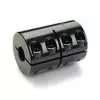
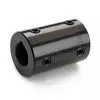
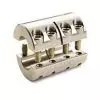
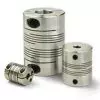
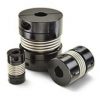
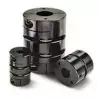
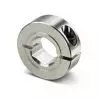
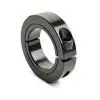
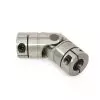
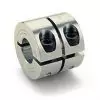 Short Rigid Couplings
Short Rigid Couplings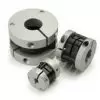 Controlflex Couplings
Controlflex Couplings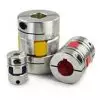 Jaw Couplings
Jaw Couplings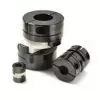 Oldham Couplings
Oldham Couplings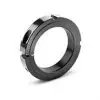 Bearing Locknuts – TCN
Bearing Locknuts – TCN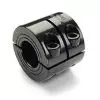 Double Wide Shaft Collars
Double Wide Shaft Collars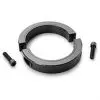 Heavy Duty Shaft Collars
Heavy Duty Shaft Collars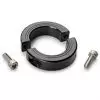 International Series Shaft Collars
International Series Shaft Collars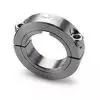 Keyed Shaft Collars
Keyed Shaft Collars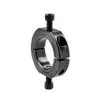 Mountable Shaft Collars
Mountable Shaft Collars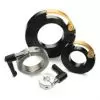 Quick Clamping Shaft Collars
Quick Clamping Shaft Collars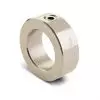 Set Screw Shaft Collars
Set Screw Shaft Collars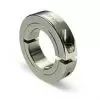 Thin Line Shaft Collars
Thin Line Shaft Collars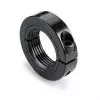 Threaded Shaft Collars – Pacific International Bearing Products
Threaded Shaft Collars – Pacific International Bearing Products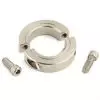 Two-Piece Shaft Collars
Two-Piece Shaft Collars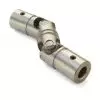 Friction Bearing Universal Joints
Friction Bearing Universal Joints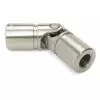 Needle Bearing Universal Joints
Needle Bearing Universal Joints

